In praise of prunes
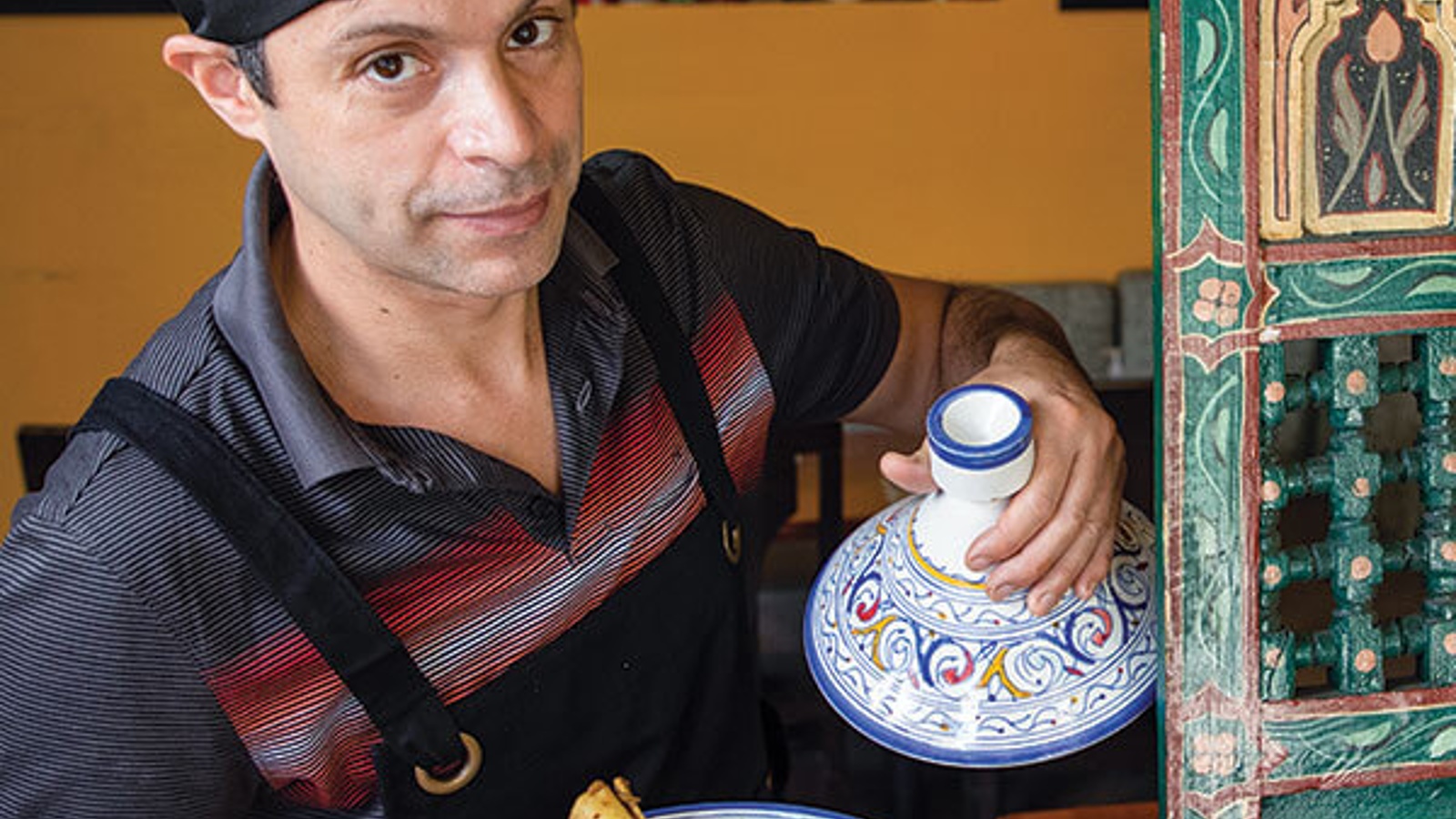
January/February 2022 California Bountiful magazine
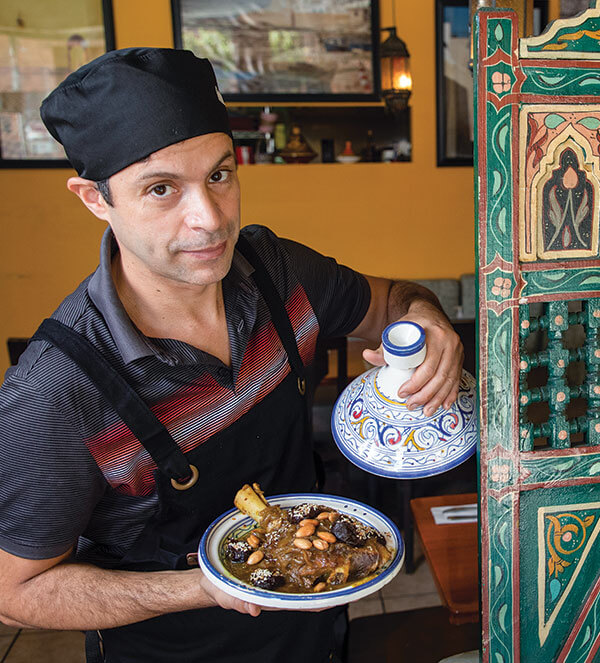
California-grown fruit has longtime fans and is winning new ones
Story by Linda DuBois
Photos by Lori Eanes
At Aicha Moroccan Cuisine in San Francisco, there's one ingredient restaurant owner and chef Reda Bakhouya makes sure he always has in abundance—prunes.
He uses them in several popular dishes, including Lamb Tagine with Prunes & Almonds and Lamb (or Chicken) Tfaya. The fruit's sweet tanginess balances and adds pop to fragrant Moroccan spices like coriander, paprika, turmeric and cumin.
"Prunes are very popular in Morocco. For example, the lamb tagine is the No. 1 dish in my place," Bakhouya said. In fact, he says when a couple comes in, most likely one of the two is there for that entrée. "Some will even ask for some extra prunes on the side."
Because prunes cook faster than the rest of the dish, he prepares them separately, in water, with a touch of rosewater, sugar and honey. "You could also add other flavors, like orange or cinnamon," he said.
"You add the prunes as a garnish on the top of the dish at the end. They add decoration and a good flavor."
He acknowledges that some Moroccan restaurants substitute dried apricots or other fruits in their tagine. But he says that's compromising the traditional Moroccan recipe.
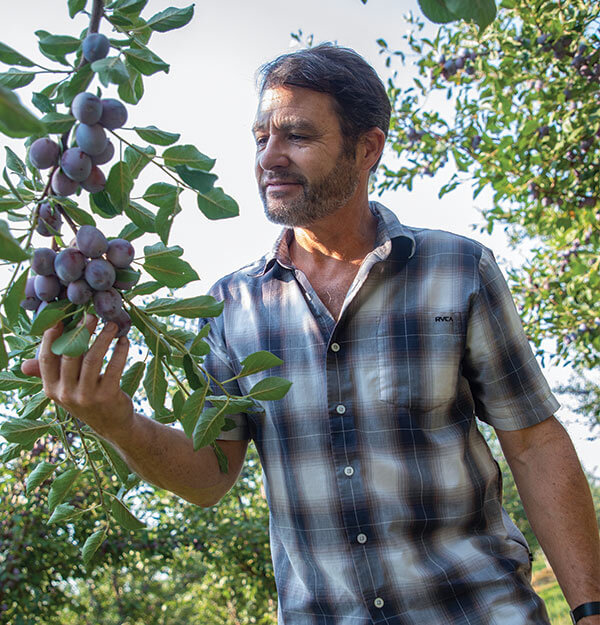
Keeping it real
Keeping the cuisine authentically Moroccan is important to Bakhouya.
His mother, Rita Griyache, opened the eatery in 2009. "She's the one who taught us how to cook," he said. With no prior chef experience but with a passion for preparing the meals of his heritage, he eventually started working part-time at the restaurant.
"I'm a finance guy … but I ended up loving cooking and got tired of office work and sitting behind a desk all the time," he said. So, he took over about two years ago and runs the restaurant with his business partner, Mustapha Elmountasir.
Right after they opened, most customers were from San Francisco's small Moroccan community, but that soon changed. "Now, I would say only about 30% are Arabs or Moroccans," Bakhouya said.
Among his regulars are U.S.-born diners pleasantly surprised by how much they enjoy what prunes bring to the entrées.
Bakhouya says it's a shame more people don't give prunes the appreciation they deserve—beyond just acknowledging their benefits for digestion.
"I don't get it. That's just an American thing." Elsewhere, "it's just a delicious fruit," he said. "It's also a great snack for kids to keep them away from candy."
He notes that he has trouble finding large packages of prunes in grocery stores.
"I would love to see more people using prunes, to see them more in markets. I hope more people will come to understand it's a good, yummy fruit."
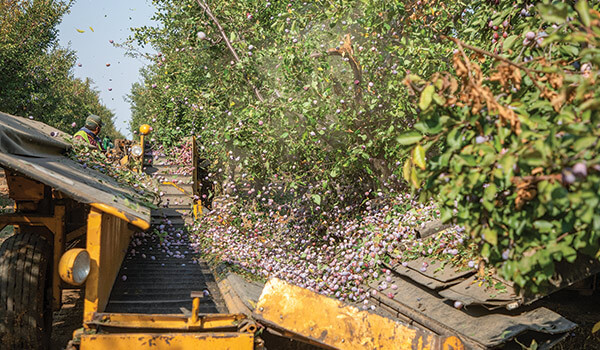
Plums become prunes
One person who does understand is Michael Vasey. He not only eats prunes almost every day, he also grows them on his 400-acre orchard in Red Bluff. Lindauer River Ranch is among the California farms that grow 99% of the prunes in the United States and 40% of the entire world's supply.
A good prune starts with the right plum, Vasey said. Currently, the super-sweet Improved French variety is the only one commercially available.
"You need a lot of sugar for drying," Vasey said. These plums are typically harvested when they are between 24% and 30% sugar. "Whereas, if you bought a big round plum in the store for eating fresh, it might be 18% sugar."
As it gets close to harvest time in August and September, Vasey's employees begin checking the ripeness of the fruit. If the prunes are harvested too early, they won't have enough sugar. Too late, and the farm loses them to the ground.
When the fruit is ready, a machine shakes them onto a frame on the ground, which then heads to a washer that removes leaves and sticks.
They then go onto wooden trays, which are stacked and loaded into the dehydrator, all within one day of harvest. There, they spend about 18 hours losing two-thirds of their weight. The employees feel the prunes about every hour to make sure they don't overdry. They put in a new set about every two hours, 24 hours a day.
The whole harvest lasts about three weeks.
The prunes' next journey is to Sunsweet Growers in Yuba City, where they are stored until processing. Then they are steamed, rehydrating them to about 30% to make them soft enough to pit, packaged and shipped all over the world.
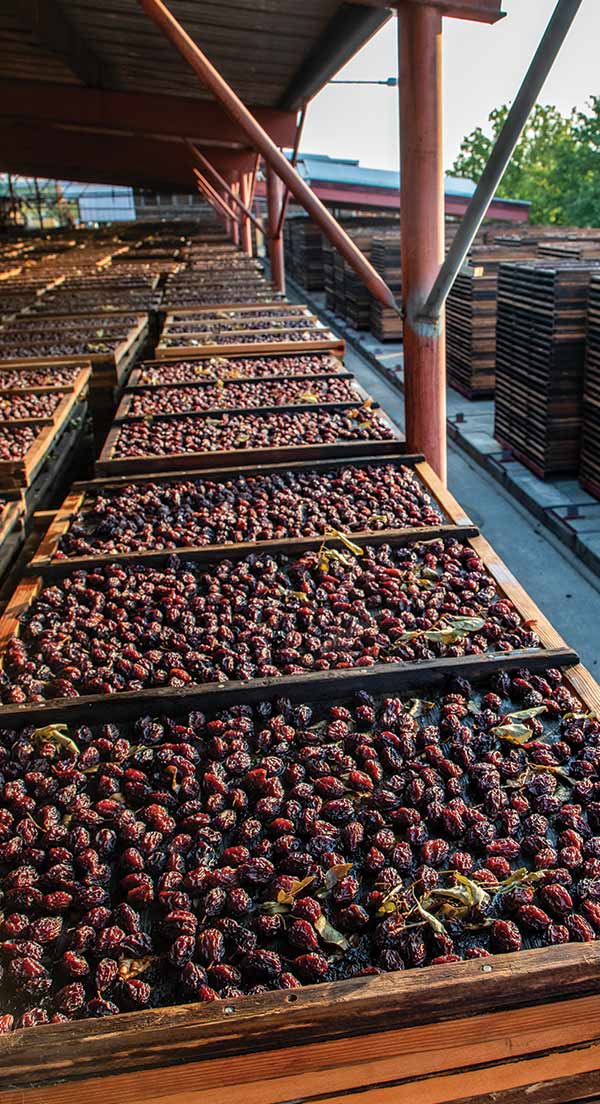
A farmer and a fan
One of the happy customers is Vasey himself.
"We've got prunes in our cupboard all the time. I probably eat four or five a day," he said.
His family keeps some prunes right out of the dehydrator and gives some to friends and family members. "That's called a natural-conditioned prune. It has the pit inside and it's drier than what you'd buy in a bag in a store," Vasey said.
When the family supply runs out or they just want the convenience of a pitted prune, they buy packaged prunes.
A longtime human resources manager, Vasey became part of a farming family 30 years ago when he married Hillary Lindauer, whose family has been growing prunes for 85 years. After the couple moved to the farm to help out about 18 years ago, Vasey began learning the ropes from his father-in-law, Ken Lindauer, before eventually taking over. He's now the only family member who works on the farm, still owned by family board members descended from the founding couple, George and Sydney Lindauer.
Vasey's two sons, Aaron and Josiah, in their mid-20s, have launched other careers, so, about two years ago, Vasey hired a non-family member tapped to take over management when he retires in the next few years.
Factors like weather inconsistency, drought, regulations, finding labor and market-value fluctuation make farming for a living challenging, Vasey said.
To cut costs and increase efficiency, he uses solar arrays to power equipment and underground irrigation lines that send water directly to the trees' roots. Rather than burning waste, he tries to recycle it as mulch.
He's also diversified, adding 280 acres of walnut trees.
Hours can be long: round-the-clock during harvest season.
But he enjoys the variety found in farming and says it's much more rewarding than the corporate world.
"I've had a varied career. I worked in the defense industry and high-tech industries and the potato chip industry. I've gone from things that weren't, in my mind, great for the world, like making MX missiles, to producing healthy food for the world—and there's a tremendous satisfaction in that."
Prunes are nutritional powerhouses
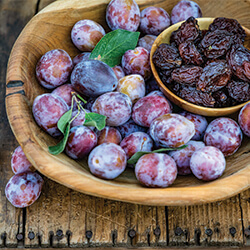
Prunes are high in nutrients benefiting the heart, nerves, muscles, bones and immune system.
Prune farmer Michael Vasey can rattle off numerous nutritional attributes: "They've got more potassium pound for pound than bananas and more antioxidants pound for pound than blueberries," he said. "They also have a low-glycemic index, so, despite being sweet, they don't ramp up your sugar really fast. And recent research has shown that they also improve bone health. It's one of the few foods that they can say that about.
"And there's been a lot of jokes about it, but they really are good for your digestion."
Prunes also can provide a boost for athletes in training, according to Leslie Bonci, a registered dietitian for the California Prune Board and a sports nutritionist.
"Nutritional strategies that minimize inflammation are a big topic of conversation," she said. Prunes have anti-inflammatory properties that can reduce pain during workouts, thus making training sessions more effective.
"Fiber, calcium, potassium and vitamin D (found in prunes) are under-consumed by most Americans, and not getting enough of these nutrients can cause health issues," she added.
Prunes also can provide an alternative to refined sugar. They work well in cakes, muffins, tortes and other desserts or breakfast breads. They can be used in dinner entrées that call for sweetening, including teriyaki bowls, pulled pork, meatballs and baked beans, and make a succulent meat or fish sauce. They can even add an interesting spin to pizza, tacos or burgers.

